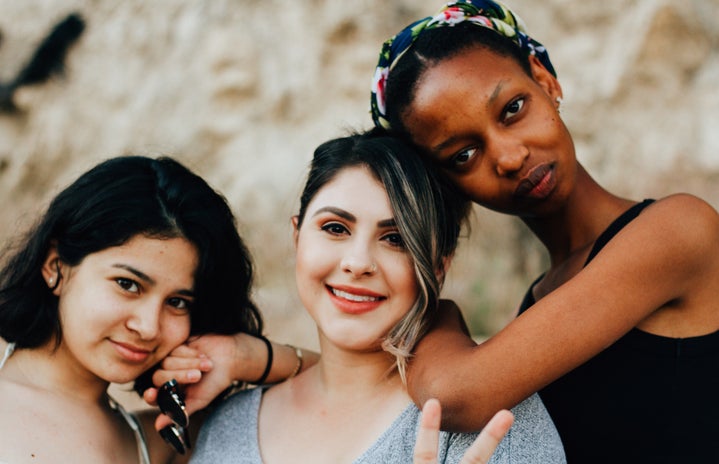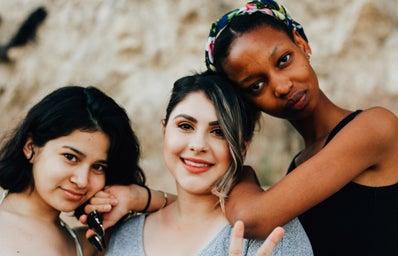From a young age, we are told to never exclude anyone, whether it’s with playing games on the playground or picking teams for kickball in gym class. But the importance of inclusivity is often a continuous learning experience for me. I say that because I’ve learned to include the people who I know and that surround me, but I wouldn’t even think about those I didn’t know or who didn’t live the same life as me.
That was just a convoluted way of saying that inclusivity is only influential and beneficial if ALL parties are taken into account. And feminism is a great place to start in order to understand this topic because most of us here are women and probably feminists.
Feminism is defined as the advocacy of the rights of women on the basis of sexual/gender equality. As women, we just want the idea that men and women are equal to actually be true, which isn’t too much if you ask me. Equal representation, respect and pay are hallmarks of feminism, and we look at them as basic rights that are being denied to us.
The issue that arises with feminism is that historically it has advocated for the equality of the sexes when referring to white women, and white women only. We have come a long way since Susan B. Anthony and the fight for women’s suffrage, but this early version of feminism only sought to earn the right to vote for white women in the United States. The progressive thinking of early feminists was still racist thinking as they would never include Black women or women of color in their movement.
I honestly used to think so highly of women like Susan B. Anthony and Elizabeth Cady Stanton because of the work they did to secure the right to vote for me and many other women, but I never knew how many people were left out in their efforts. As a white woman, I was oblivious to this deep-seated issue with feminism because it wasn’t directly affecting me as I was growing up and getting the chance to vote for the first time.
Coming to college and breaking out of this bubble of ignorance, I saw how one-dimensional my thinking was on everything from politics to feminism. It’s not enough to think about how something affects you individually because not only is that selfish thinking, but it’s detrimental to others and the overall progression of society.
The term intersectionality was coined by Professor Kimberlé Crenshaw in the late 1980s and is defined as the idea that social identities such as race, class and gender are interconnected in ways that lead to oppression and discrimination for specific individuals. The 15th Amendment of the Constitution gave Black men the right to vote, and the 19th Amendment gave women the right vote, but somehow Black women were somehow left out or pushed to the side in both pieces of legislation.
By excluding Black women in the suffrage movement, feminism represented different things for different races and classes of women. Even today, the threat of white feminism still exists with some white women trying to advocate for other races of women without fully understanding the differences between them. I realized that there was a hierarchy within the feminism movement which would mean that even if women were ever seen as completely equal to men, it wouldn’t mean all women.
So, in order for us to truly move forward and ensure that our advocacy and fight for equality is just and fair, we have to be inclusive. We cannot expect feminism to tackle the patriarchy if white women were to do it alone, leaving whole groups of women behind, having to catch up whenever we see fit. Let’s try to be better.





